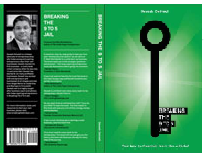Challenging Cashflow – Try Bartering
Posted Under: Business, Marketing, Networking, Small Business, Startup
Now, I believe we all know what barter means but just in case you have been living under a wrong impression, here’s what Wikipedia has to say: Barter is a type of trade in which goods or services are directly exchanged for other goods and/or services, without the use of money.
The purpose of this write up is to re-introduce you to the barter concept, tell you how much more it has evolved over the time and how it can be a powerful tool to manage the cash flow, network, promote your product and services and increase sales. Bartering is an intelligent and attractive option for individuals and businesses on budget. It’s a way of meeting your needs without spending any money. Our need for professional services can range anywhere from tutors and nannies to dentists or lawyers. It can be something as simple as carpet cleaning for your house. No matter what your needs are, bartering your services in return for someone else’s is the perfect solution for managing your ever challenging cash flow.
If you’re a business owner then you know how much money goes into purchasing your products, supplies or services. An effective bartering approach can actually make your business more successful and you a savvy business owner. You gain more customers in the process because these are not the customers that you would have normally done business with and not only that but once you’ve bartered successfully with another business owner you open yourself up to a new business relationship that can help your company grow for years to come.
Online barter sites (like craigslist, u-exchange, swapthing, itex, bizx, barterbee, barterbucks and many more) make it a breeze to find people and businesses that share a similar interest of bartering their services. Shop around on different barter sites to see what’s best for you. Here are a few simple guidelines to follow that will get you on your way to some sweet deals.
Where to start? It can be confusing as to which one to join when there are so many barter websites available. Some websites deal with barter currency, some charge membership or transaction fees and some are free. The best suggestion I can offer is to shop around and decide what fits your bill. I use Craigslist because it’s free and because I only barter occasionally and specifically. Make sure you do some research on how their system works and that they have good customer support, before you join any of these. You can always join more than one and start weeding out the ones that don’t work for you. Be aware of the hidden costs involved as some charge you membership, some transaction fee and some charge you a percentage on the value of transaction.
Be detailed and specific: Once you are ready to trade, write down a detailed Ad, add as many specifications as you can the model number, brand, years of use, condition, pictures etc all. Then write a line or two about what you need in exchange. If you’re not looking for anything in particular, then it’s a good idea to add that you are open to suggestions. It may be a trade that you never even thought of, but a service you could certainly use. The key is to always be specific so that people know what you have and what you want. The more information you put in the ad, the lesser time you spend on emailing back and forth and phone tagging.
Assign value: Americans are used to giving merchandise a dollar value, and determining exactly how many music lessons a dental filling is worth can be tricky. Try to assign a fair value to your product or services, over or under-pricing does nothing but hurt you. If you under-price, they would think you’re a scammer or have a low quality offering and if you overprice, they might think you’re just trying to exploit the situation or they might even consider a purchase from someone else rather than a barter with you. They key is to fairly assign a value and be open to negotiations…
Remember taxes You may not be dealing with cash but remember income from bartering is taxable, and bartering exchanges are required to report transactions to the Internal Revenue Service. Small, informal, and noncommercial arrangements generally slide under the radar of the IRS because there is no reporting that takes place, so the IRS has no way of tracking those transactions and the people themselves probably don’t have a receipt. Businesses or trades people can deduct costs incurred to perform the work that was bartered. If you make a profit, then it would be a taxable event. If you sell it for less than you paid for it, then it would not be a taxable event because you are not making money.
IRS Info: http://www.irs.gov/businesses/small/article/0,,id=187920,00.html
I have been very successful in bartering; however I am very selective about my bartering arrangements. I always make sure to document what each party will bring to the table and what the expectations are before anything was exchanged. If you follow a fair and straightforward approach so that no one is disappointed then you will find that barter is a very effective tool to manage your cash flow and grow your business. The key is to be extremely clear up front on the actual “quid pro quo”, and be certain that both sides really understand and value what they are getting out of the trade, and then provide on your end and you will likely have a new customer and ongoing referrals if your service or product is the type that attracts.





